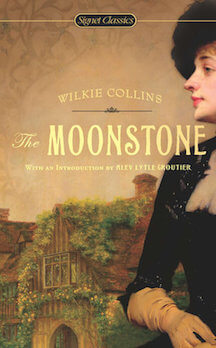
In our monthly book club, we discuss whatever we happen to be reading and ask everyone in the comments to do the same. What Are You Reading This Month?
What You Are Getting Wrong About Appalachia by Elizabeth Catte
It turns out there’s a lot you might be getting wrong about Appalachia, especially if your knowledge is based on J.D. Vance’s Hillbilly Elegy. The wildly popular memoir, which chronicles the author’s Appalachian upbringing, propelled Vance into stardom as a kind of talking head for the region and its woes. In What You Are Getting Wrong About Appalachia, historian and Tennessee native Elizabeth Catte refutes much of Vance’s work, methodically debunking the misperceptions—repeated so many times as to become cliché—that Vance, politicians, and the national media regularly put forth about the area. Such views present Appalachia as a monoculture—made up of helpless white coal miners who drink too much, fight, and have too many kids—while actively ignoring the region’s LGBTQ population, people of color, and community organizers who fight to make life in Appalachia better for all its citizens. More than a mere rebuttal to such generalizations, WYAGWAA fills in the blanks that this stripped-down, simplified vision ignores, instead celebrating Appalachia’s rich history of civil disobedience and labor activism. Catte’s slim, very readable volume is like a more focused version of Howard Zinn’s venerable A People’s History Of The United States, turning its lens to the on-the-ground civic struggles of people who have lived and died in Appalachia. That this book comes from small independent press Belt Publishing, which publishes writing from across the Midwest and Rust Belt on oft-overlooked subjects, is fitting. [Laura Adamczyk]
How Not To Be A Boy: Rules For Being A Man by Robert Webb
Any man writing a book about feminism or toxic masculinity has an uphill battle ahead of him: On the one hand, it’s important for everybody to shoulder the burdens and work of feminism. On the other, some men seem to have just discovered work that feminism has been doing for decades. Robert Webb organically avoids that conundrum in his memoir, How Not To Be A Boy: Rules For Being A Man, by keeping the storytelling intensely personal. Webb, best known Stateside for his nine-season run as Peep Show’s perpetual man-boy Jeremy “Jez” Usborne, turns out to have been something of a man-boy himself. With heartbreaking honesty, he addresses circumstances that contributed to this development, from parental abuse to how broad ideas of “what men should be” are genuinely terrible for all of us. Although Webb’s storytelling style is occasionally scattered, the book will appeal to fans of British comedy (particularly Cambridge Footlights in the early ’90s) as well as those looking for an autobiography that’s full of heart and humor—but which also scathingly rips apart damaging gender stereotypes.
You’ll Grow Out Of It by Jessi Klein
I seem to be on an inadvertent roll of comedians’ memoirs-slash-gender-commentary, because I’m also listening to the audiobook of Jessi Klein’s You’ll Grow Out Of It. Klein’s experience is very specific—she’s a Jewish, intellectual New Yorker who devotes a chapter to her love of Anthropologie and the shame it provokes in her—but entirely enjoyable. Klein is straight, and her tomboyish childhood gave way into what she dubs a “tom man” style. Her wonderment at discovering what women “should” be like takes her through Pure Barre classes, raggedy toenails and first pedicures, and watching The Bachelor with her husband. It’s worth listening to just to hear Klein describe trying to get laid by Dale the Chipmunk on her 28th birthday weekend. [Laura M. Browning]
The Moonstone by Wilkie Collins
The Moonstone is touted as the first true detective novel, and it’s easy to see how it laid the groundwork for future puzzle-box mysteries like the ones solved by Sherlock Holmes. Author Wilkie Collins (who may be best remembered for The Woman In White) crafted elements in The Moonstone that became staples of the 20th-century detective story: The Moonstone, a large diamond, is stolen from a secluded home in the British country; an idiosyncratic private investigator takes over the case from a bungling local policeman; red herrings and several false suspects complicate matters; and a shocking final twist finishes the book.
While there are some unfortunate racist caricatures in The Moonstone, Collins was progressive for an Englishman writing in the 1860s. His portrayal of India is seeped in exoticism, but at the time the novel was a more realistic portrayal of India than could be found in literature, with Collins doing considerable research to accurately describe his characters. They’re also written from a sympathetic viewpoint, and the symbol of the Moonstone can be seen as a stand-in for colonial evils and retribution for British plundering. Collins similarly treats the women in his novel much better than the average male writer at the time did. The main female character’s strong will and determination gives her actual agency in the plot of her stolen diamond, even if she’s described as an oddity among her sex for displaying those traits.
The Moonstone also boasts one of the most disturbing visuals ever brought to life on the page: the “Shivering Sand,” a quicksand-esque inlet of the Yorkshire coast. The novel opens overlooking this eerie, uncanny stretch of beach, which comes to life at the change of the tide: “…the horrid sand began to shiver. The broad brown face of it heaved slowly, and then dimpled and quivered all over.” Later, a servant remarks, “It looks as if it had hundreds of suffocating people under it—all struggling to get to the surface, and all sinking lower and lower in the dreadful deeps!” The Shivering Sand turns out to be more than just an ominous setting, but to say more would dilute the creatively frightening scenes that take place in its quivering depths. [Caitlin PenzeyMoog]